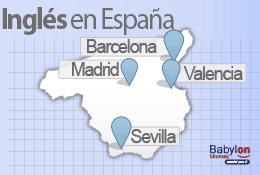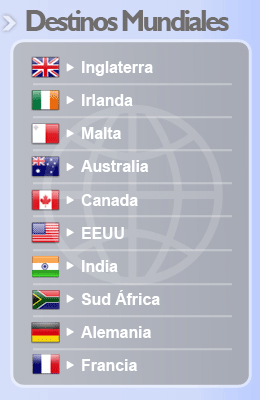|
|
CELTA Course Programme
The Cambridge CELTA follows a carefully designed syllabus to enable trainees to get a thorough practical and theoretical grounding in teaching English to adults.
The programme is divided into 5 main sections:
- Learners & teachers
- Language analysis & awareness
- Language skills
- Planning & resources for different teaching contexts
- Developing teaching skills & professionalism
Here are some of the things each one will enable you to do:
- Learn to teach:
Develop an initial understanding of the contexts within which adults learn English, and the roles of the teacher and the learner.
Consider the different learning styles of the students, their motivations and any cultural considerations.
Select materials and activities appropriate to a class.
learn how to develop a positive classroom atmosphere - Language analysis & awareness
Develop an understanding of language (i.e. grammar) for teaching purposes
Learn how to clarify language in an appropriate way for learners
Provide appropriate practice of language items for learners - Language skills
Develop an understanding of what is involved in the four skills (i.e. reading, writing, listening and speaking)
Learn how to focus on and develop the skills and their sub-skills
Learn how to ensure a communicative focus in lessons through a balance of skills work and language work - Planning & resources for different teaching contexts
Learn how to create effective lessons by adapting and creating materials to suit the learning context
Develop familiarity with appropriate resources and materials for use with adult learners of English for teaching, testing and for research purposes
Set clear aims and learning outcomes for you lessons - Developing teaching skills & professionalism
Develop an awareness of classroom management, such as giving clear instructions, and eliciting and checking understanding of grammar
Learn how to motivate learners by managing the learning process effectively
Note your strengths and weaknesses in order to develop both on and beyond the course
For a detailed syllabus check out the Cambridge-ESOL website. In case the above all looks a bit too theoretical, let's take a look at what the course involves on a more practical level:
What will I do during the course?
There are 120 contact hours with the tutors during the five weeks. You will be expected to work on top of these hours in lesson preparation, research and doing written assignments. Typically this adds a minimum of another 80 hours to the course.
| The course is made up of the following elements: | |
| Teaching practice | Input sessions |
| Feedback on teaching practice | Observation of experienced teachers |
| Supervised lesson preparation | Written assignments |
| What does teaching practice involve? | |
| The classes: | The students: |
| you teach for 6 hours in total | are adult learners from different backgrounds |
| you begin by teaching for a short period at the start and gradually build up to longer lessons of up to an hour | are mainly Spanish but can be of any nationality |
| you get to teach different types of lessons, such as speaking, writing, or lessons with a grammar focus | During the course you work with two different levels of students (typically elementary and intermediate) |
Our aim is to make you a confident English teacher. The tutors give you lots of help at the start of the course, and while continuing to support you throughout, you become more and more autonomous.
The feedback sessions are designed to help you build on your successes and learn from your classroom experiences. After each teaching practice session trainees collaborate in the feedback session, led by the tutor. Here trainees are expected to comment on each other's lessons and reflect on what hey have seen.
How do I know what to teach?
In the supervised lesson preparation the tutors help the trainees develop the skills to plan both what they will do and how they are going to achieve it.
Our aim is not to prescribe one way to teach a class, but to guide you and give you exposure and practice in different ways. At the same time, you will be informed about what is at the cutting edge of teaching practice these days.
As a result, by the end of the course you will become independent in both your lesson preparation and in the classroom. You will feel ready for the real world of language teaching.
What happens in the input sessions?
As with the rest of the course, the emphasis is on learning by doing and are run like workshops, rather than lectures. They cover area such as how to teach writing , using authentic materials , language awareness and classroom management . the focus is always on ideas and techniques which can immediately be put into practice.
What about observation of experienced teachers?
During the course you observe different experienced teachers (often your tutors) in real classrooms teaching different levels of students. You are given an observation task to do to help you focus on particular aspects of the class, the teacher and the students.
This is in addition to the extremely valuable observation of your colleagues teaching your teaching practice group.
What kind of written assignments are there?
Over the month you do a number of written assignments according to the Cambridge CELTA syllabus. The areas covered are
- the language systems of English
- reflections on classroom teaching
- adult learning and learning contexts
- teaching materials.
All of these assignments tie in closely with the input sessions and reflect the practical , developmental nature of the course. You have access to the school library and your tutor is always available to help you.
Obviously the research and actual writing needs to be done outside of the timetabled hours.
How will I be assessed?
There is no exam as such on the CELTA. Instead, you are assessed on two elements throughout the course:
- the teaching practice
- the written assignments
Obviously the teaching is the most important element. Apart from how you actually teach the lesson, you will be graded on the preparation work you do where appropriate, such as any materials you make, and your lesson plan.
After each lesson you will be given specific oral and written feedback so you will know how you are progressing. Obviously, anyone experiencing difficulties is given more help by the tutors.




